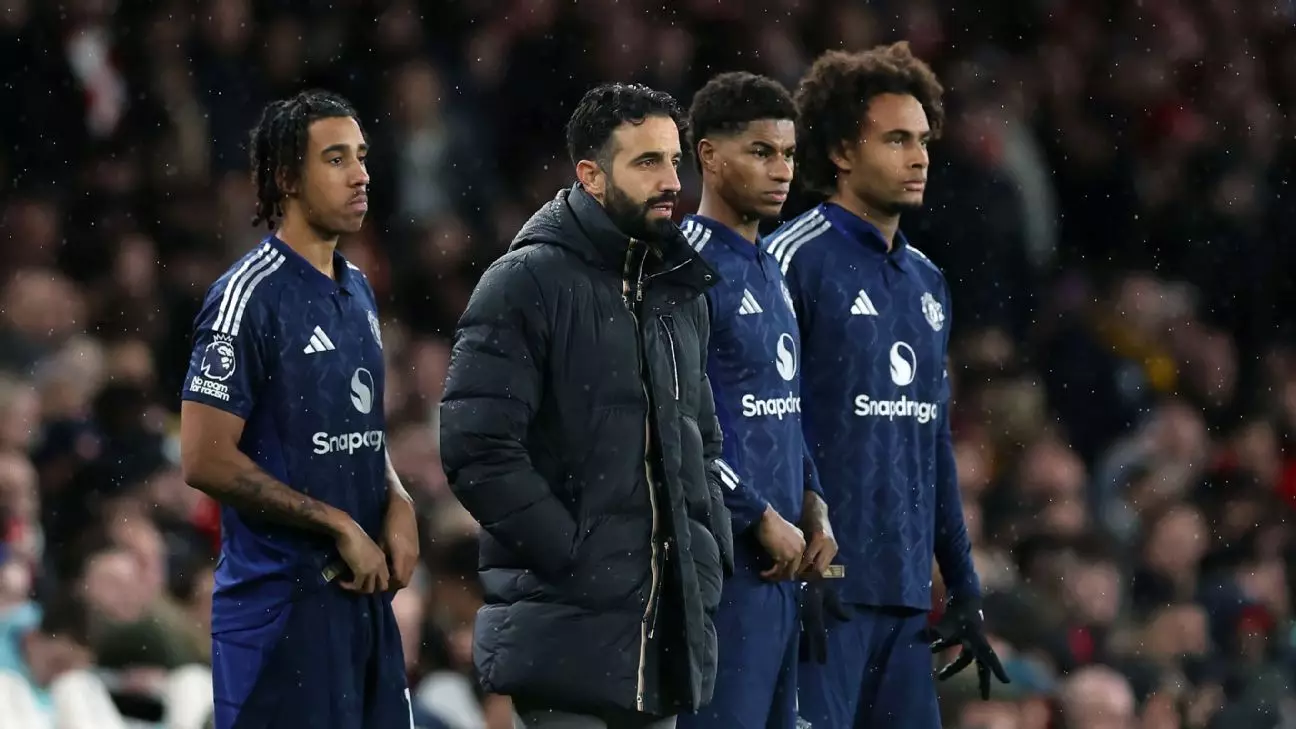Ruben Amorim’s arrival at Manchester United has been met with a whirlwind of expectations and challenges. After suffering a 2-0 defeat against Arsenal—his inaugural loss since taking the helm—the need for strategic management of player fitness has never been more pressing. This setback, marked by goals from Jurriën Timber and William Saliba both stemming from corner situations, highlighted the fragility of a squad still grappling with injury woes. Amorim’s previous success at Sporting CP made his transition seem promising; however, the realities of managing a high-stakes environment like United are fraught with difficulties, particularly as he contends with ongoing player fitness issues.
Amorim’s remarks on players returning from injury reveal a manager grappling with the constraints of time. His reliance on players like Harry Maguire, Tyrell Malacia, and Mason Mount—who each have played limited minutes post-injury—underscores the delicate balance he must maintain. This is not just about winning games; it is about preserving the long-term health of his athletes. The mention of ‘time limits’ emphasizes that any injury return requires careful calculus, where winning today is weighed against potential losses tomorrow.
His strategic approach in handling players like Leny Yoro, who recently returned from a significant foot injury, indicates the lengths to which he is willing to go to ensure comprehensive squad fitness. Such foresight is crucial, as it prevents aggravation of existing injuries that could sideline players for even longer. The system of “managing within games” not only affects immediate performance but also long-term team cohesion and morale.
Despite the loss at the Emirates, Amorim remains optimistic, suggesting that evaluating performance is more nuanced than merely looking at the scoreboard. This perspective is vital for instilling resilience within the squad. By focusing on the positives from the game, such as the intensity and drive shown by his players, he hopes to build a foundation for future successes. His mention of an uncomfortable atmosphere in the stadium during crucial moments indicates that even in defeat, there were glimpses of competitive spirit that can be harnessed for improvement.
Amorim’s ability to extract lessons from each match, regardless of the outcome, aids in fostering a growth mindset within his team. The manager’s reference to wanting to “improve” highlights an awareness that mere skill or tactics cannot guarantee victories. Instead, it is the adaptability of the team—its resilience in the face of adversity—that will define their season.
A notable focal point in Amorim’s strategy is his commitment to player welfare, particularly concerning Luke Shaw, who has faced yet another injury setback following five months of recovery. Amorim’s comments reveal a compassionate side; he emphasizes patience and understanding in rehabilitation. This player-oriented approach is crucial for a manager seeking stability within his ranks. Shaw’s dedication to return fit from injury speaks volumes about the work culture Amorim is fostering—a culture that prioritizes health over immediate performance.
By taking the necessary time for players to fully recover and avoid setbacks, Amorim is not just strategizing for the present but also actively investing in the future of the squad. His assertion that Shaw is a “top, top player” reveals a deep understanding of the value of retaining experienced talent, especially in a league as competitive as the Premier League.
Ruben Amorim’s journey at Manchester United is just beginning, and while the shadow of a defeat looms large, it also serves as a catalyst for growth and adaptation. By prioritizing player management and fostering a culture of resilience and learning from defeats, he has placed himself and the club at a critical juncture. Understanding the weight of both the present and future will be integral to creating a successful tenure at Manchester United. As he continues to navigate the challenges that lie ahead, the actions he takes now will shape the trajectory of the club for seasons to come.

